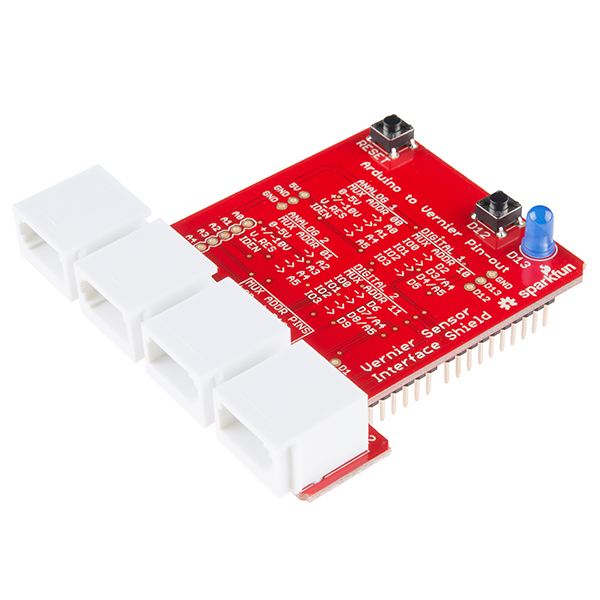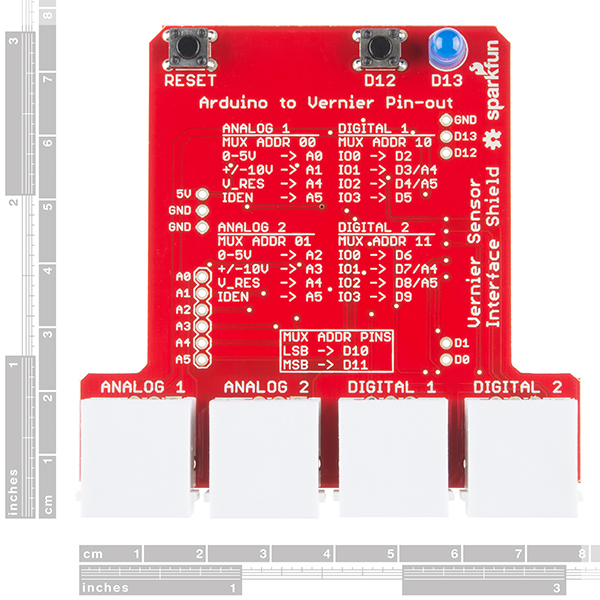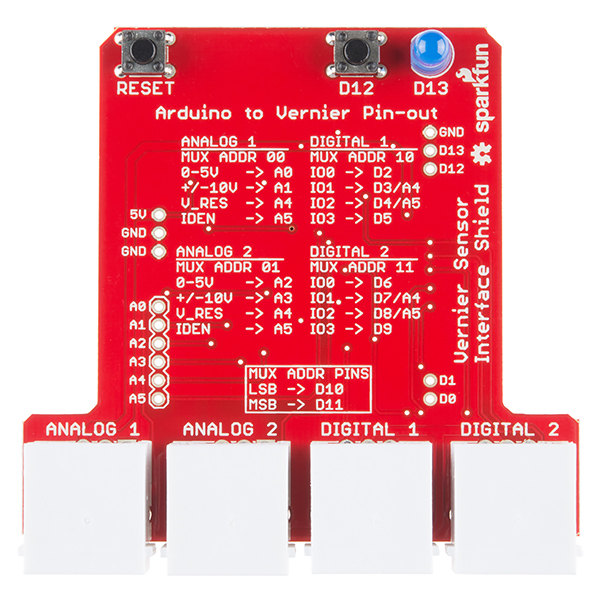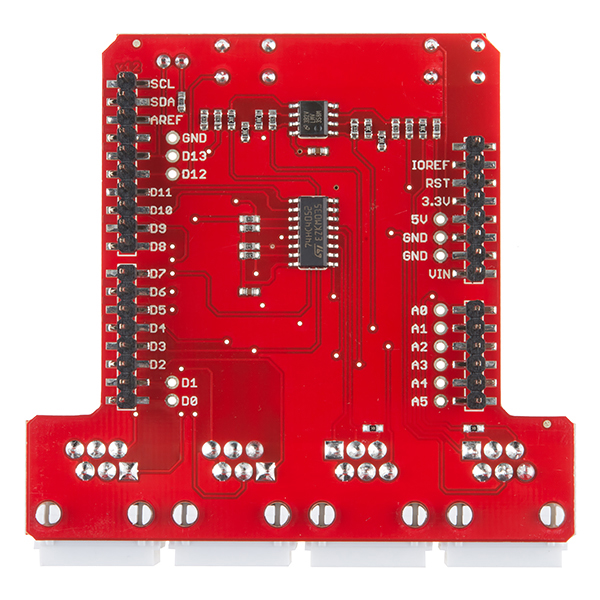SparkFun Vernier Interface Shield
This is the SparkFun Vernier Interface Shield, a simple add-on to give your Arduino the capability to interface with Vernier sensors. Attached to this interface shield are four British Telecom sockets (2 Analog, 2 Digital) which all Vernier sensors use as connectors. Like any other shield, simply attach it to an Arduino development platform. This shield was developed to be used with the Arduino Uno platform but will still work with other Uno equivalents like the Leonardo or SparkFun RedBoard.
Vernier Software and Technology has been a leader in data collection and analysis for educators world-wide. They were amongst the first companies to design and promote the use of computers, sensors, and data collection in K-12 classroom laboratory experiments.
- Schematic
- Eagle Files
- Arduino and Vernier Sensors
- Hookup Guide
- GitHub (Design Files & Example Code)
- GitHub (Library)
SparkFun Vernier Interface Shield Product Help and Resources
Extension Cables
Unfortunately, we do not carry extension cables with pre-terminated female ends. They can be found elsewhere (eBay, Amazon, etc.) by searching for "BT Telephone Cable". Vernier has their own, short versions.
Comments
Looking for answers to technical questions?
We welcome your comments and suggestions below. However, if you are looking for solutions to technical questions please see our Technical Assistance page.
Customer Reviews
4.5 out of 5
Based on 6 ratings:
Works Well So Far
We have older model Verniers at our college and I was thinking of having students make replacements using Arduinos and the these shields. I was able to get this working very easily, but have not tried it as a class project yet.
Works great
It works great, no complains. The only thing I would work on is leaving more space on certain pins to connect to other stuff.
Opens whole new world for using Vernier Sensors with low cost of entry
I teach physics. This has been a nice addition to my classroom demos.
One suggestion - I like to use the Qwiic Scale NAT7802 for demonstrating that a falling chain exerts 3X the weight of a chain when the last link hits the scale. Problem is there is no 3.3 V breakout on the shield.
It functions as expected, but it won't stack on my Arduino Yun, because it doesnt fit over the Yun's ethernet socket.
Great way to integrate Vernier sensors
Easy to use. Reliable. Works as expected. I like being able to use the Vernier sensors and integrate them into my house automation setup.
Works as expected.
Works great, I have 2 analog sensors working at once to get data. Easily found some base code for force plates, then was able to build from there and even take serial data into a Python code pretty easily. No gripes.





works great. would you know how to read the data from the vernier heart rate sensor? http://www.vernier.com/products/sensors/heart-rate-sensors/hgh-bta/
thanks